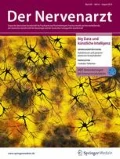Zusammenfassung
In einer randomisierten, placebokontrollierten Doppelblindstudie im Cross-over-Design wurde erstmalig die analgetische Wirksamkeit und Verträglichkeit einer lokal applizierten Pfefferminzölpräparation bei klinischem Kopfschmerz vom Spannungstyp bestimmt. Die Prüfung erfolgte sowohl gegen die Vergleichssubstanz Paracetamol als auch gegen Placebo. Die Applikation des Öls erfolgte großflächig auf Stirn und Schläfen und war 2mal (nach 15 und 30 min) zu wiederholen. Als Ergebnis fand sich, daß im Vergleich zu der Gabe von Placebo 10 %iges Pfefferminzöl in ethanolischer Lösung bereits nach 15 min in der Lage war, eine signifikante Reduktion der klinischen Kopfschmerzintensität im Vergleich zur Placebotherapie zu erzielen. Die signifikante klinische Reduktion der Schmerzintensität setzte sich im Verlauf der Beobachtungszeit von 1 h weiter fort. Auch Paracetamol erwies sich als signifikant gegenüber Placebo wirksam. Zwischen der Wirksamkeit von 1 g Paracetamol und 10 %igem Pfefferminzöl in ethanolischer Lösung bestand kein signifikanter Unterschied. Bei gleichzeitiger Gabe von 1 g Paracetamol plus 10 %igem Pfefferminzöl in ethanolischer Lösung ließ sich ein additiver Effekt feststellen, der jedoch die Signifikanzgrenze nicht überschritt. Unerwünschte Arzneimittelwirkungen wurden von den Patienten nicht berichtet. Pfefferminzöl stellt eine verträgliche und kostengünstige Alternative zu den bisherigen therapeutischen Möglichkeiten dar und ist hinsichtlich der Wirksamkeit und Verträglichkeit der Standardmedikation Paracetamol ebenbürtig.
Summary
The effect of a locally applied peppermint oil preparation on tension-type headache was examined in the design of a randomized, placebo-controlled double-blind crossover study for the first time. The preparation was tested against both the reference substance acetaminophen and to the corresponding placebo. The liquid test preparation contained 10 g of peppermint oil and ethanol (90 %) ad 100 (test preparation LI 170, Lichtwer Pharma, Berlin); the placebo was a 90 % ethanol solution to which traces of peppermint oil were added for blinding purposes. The reference preparation contained 500 mg acetaminophen; the placebo tablet was identical to the verum in size and appearance. The study included the analysis of 164 headache attacks of 41 patients of both sexes ranging between 18 and 65 years of age, suffering from tension-type headache in accordance with the IHS classification. Four headache episodes per patient were treated in a double-blind, randomized crossover design. Each headache attack was treated by the application of 2 capsules of the oral medication (1000 mg of acetaminophen or placebo) and the cutaneous application of the oil preparation (peppermint oil or placebo solution). The oil was spread largely across forehead and temples which was repeated after 15 and 30 minutes. Using a headache diary, the headache parameters were assessed after 15, 30, 45 and 60 minutes. Compared to the application of placebo, a 10 % peppermint oil in ethanol solution significantly reduced the clinical headache intensity already after 15 minutes (p < 0.01). This significant clinical reduction of the pain intensity continued over the one hour observation period. Acetaminophen, too, proved to be efficient compared to placebo (p < 0.01). There was no significant difference between the efficacy of 1000 mg of acetaminophen and 10 % peppermint oil in ethanol solution. Simultaneous application of 1000 mg of acetaminophen and 10 % peppermint oil in ethanol solution leads to an additive effect which remains below the significance threshold, however. The patients reported no adverse events. This controlled study showed for the first time that a 10 % peppermint oil in ethanol solution efficiently alleviates tension-type headache. Peppermint oil thus proves to be a well-tolerated and cost-effective alternative to usual therapies.
Author information
Authors and Affiliations
Rights and permissions
About this article
Cite this article
Göbel, H., Fresenius, J., Heinze, A. et al. Effektivität von Oleum menthae piperitae und von Paracetamol in der Therapie des Kopfschmerzes vom Spannungstyp. Nervenarzt 67, 672–681 (1996). https://doi.org/10.1007/s001150050040
Issue Date:
DOI: https://doi.org/10.1007/s001150050040

